Focusing on the Development of Tungkup Irrigation Area, This Time the Research Collaboration between Jircas Japan and FTP Unud on Climate Change Adaptation
The Faculty of Agricultural Technology continues to collaborate with international institutions, one of which is Japan. This time, the Research Cooperation of the Faculty of Agricultural Technology, Udayana University with the Japan International Research Center for Agricultural Sciences (JIRCAS) on Adaptation to Climate Change in the Tungkub Irrigation Area, Bali.
This research is a multi-year study aimed at determining the optimal irrigation management model in the Tungkub Irrigation Area, Bali to adapt to climate change. The year 2024 is the second year of this collaboration, which emphasizes the validation of satellite image data with the real situation in subak within the Tungkub Irrigation Area. The implementation of the research took place from 9 - 15 February 2024 carried out by research members from the Natural Resources and Environmental Management Laboratory, Agricultural and Biosystem Engineering Study Program consisting of Dr. Sumiyati, S.TP., M.P., Ni Nyoman Sulastri, S.TP., M.Agr., Ph.D., and Ir. I Wayan Tika, M.P. with Dr. Fumi Okura from JIRCAS. The implementation was divided into three stages, the first was to conduct interviews with pekasih/pangliman and weir observers to obtain information on irrigation management in each subak and tempek. The second stage was field validation, which aimed to validate the satellite image data with those in the field, especially those related to the planting period and the height of waterlogging in the field. The final stage was to measure water discharge and collect climatological data from the Automatic Weather Station (AWS) that had been installed in early 2023.
One of the research team, Dr. Sumiyati, S.TP., M.P. reported that in addition to the implementation of research, FTP and JIRCAS also discussed the possibility of expanding cooperation by cooperating with Tokyo University of Agriculture and Technology (TUAT) and the development of continued cooperation both planning the application and adoption of smart climate agriculture technology.
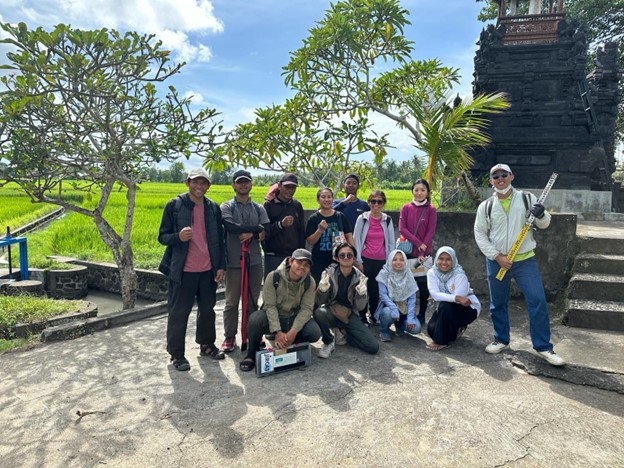
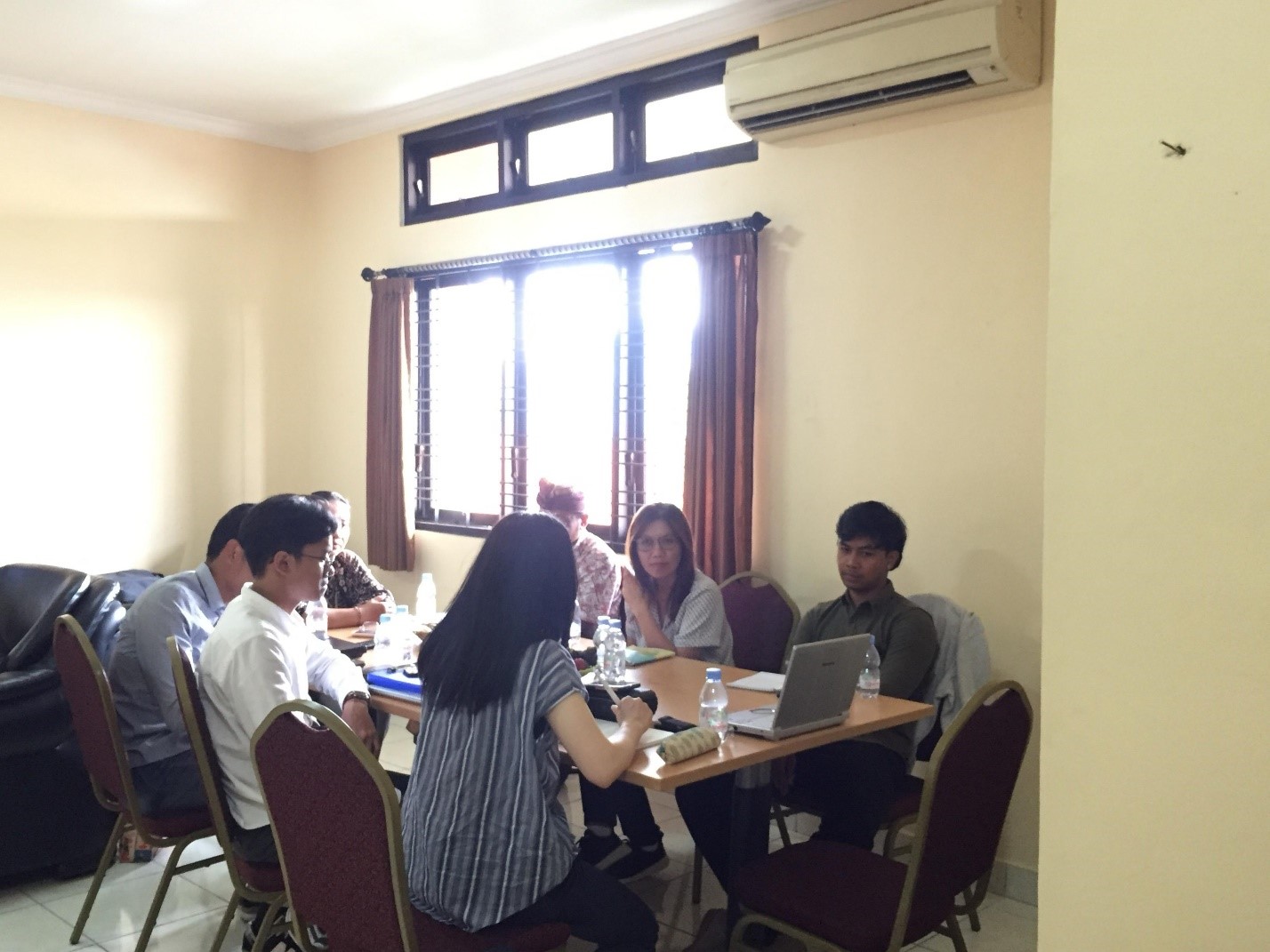
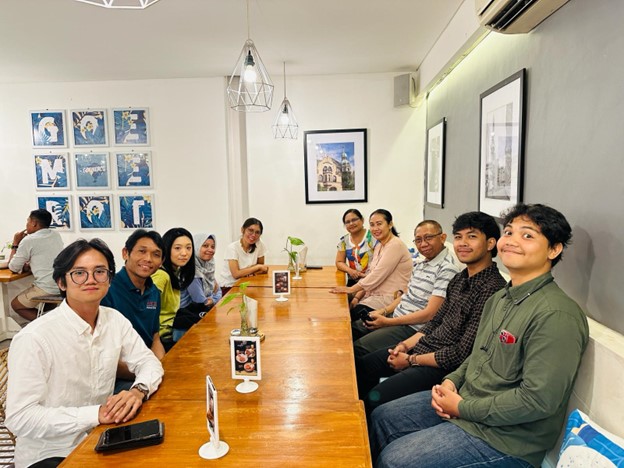
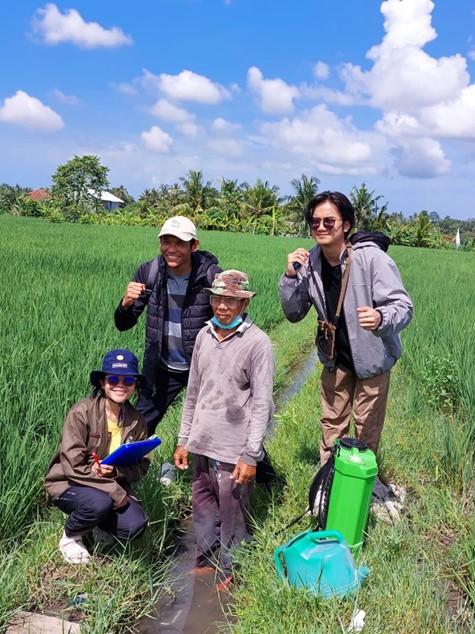
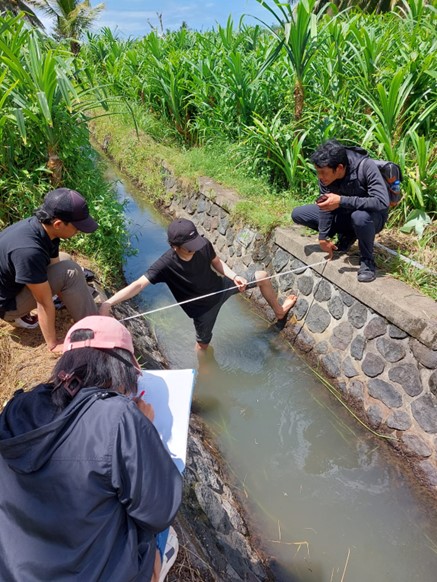
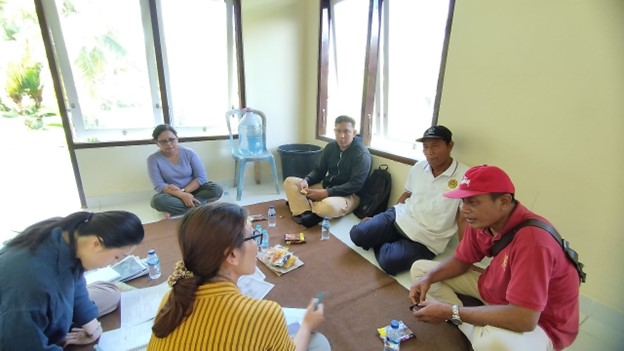
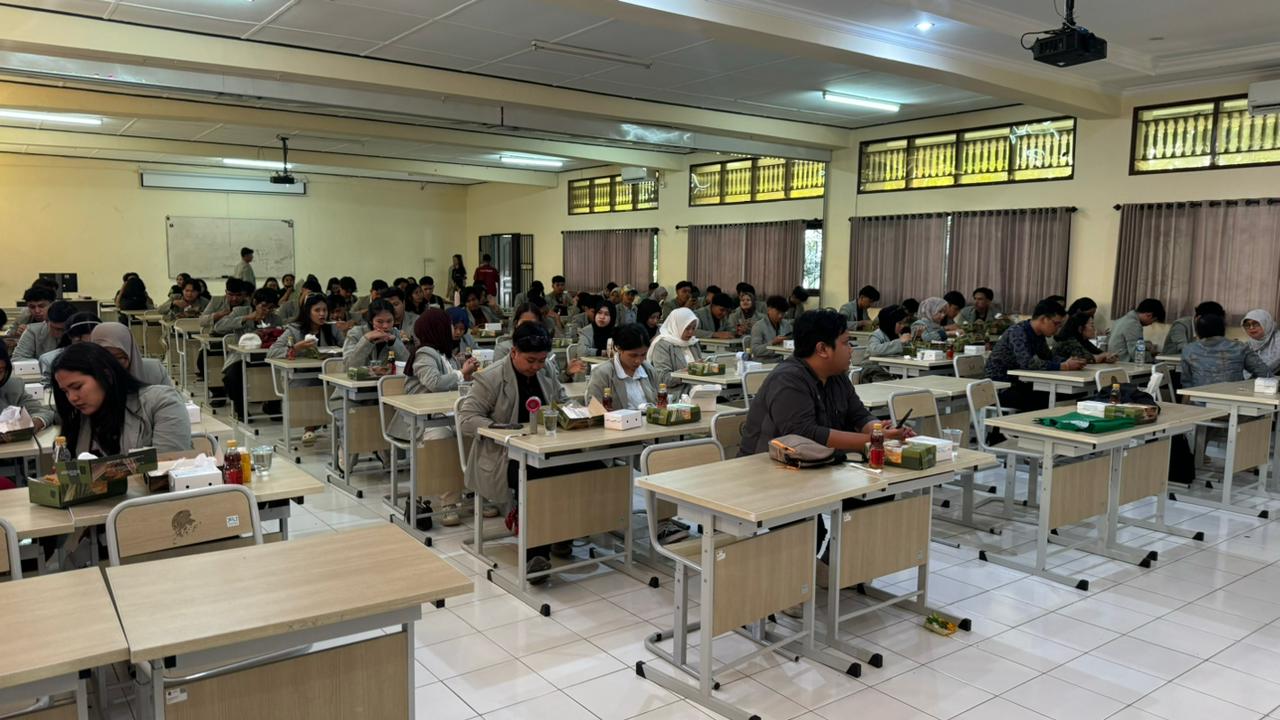
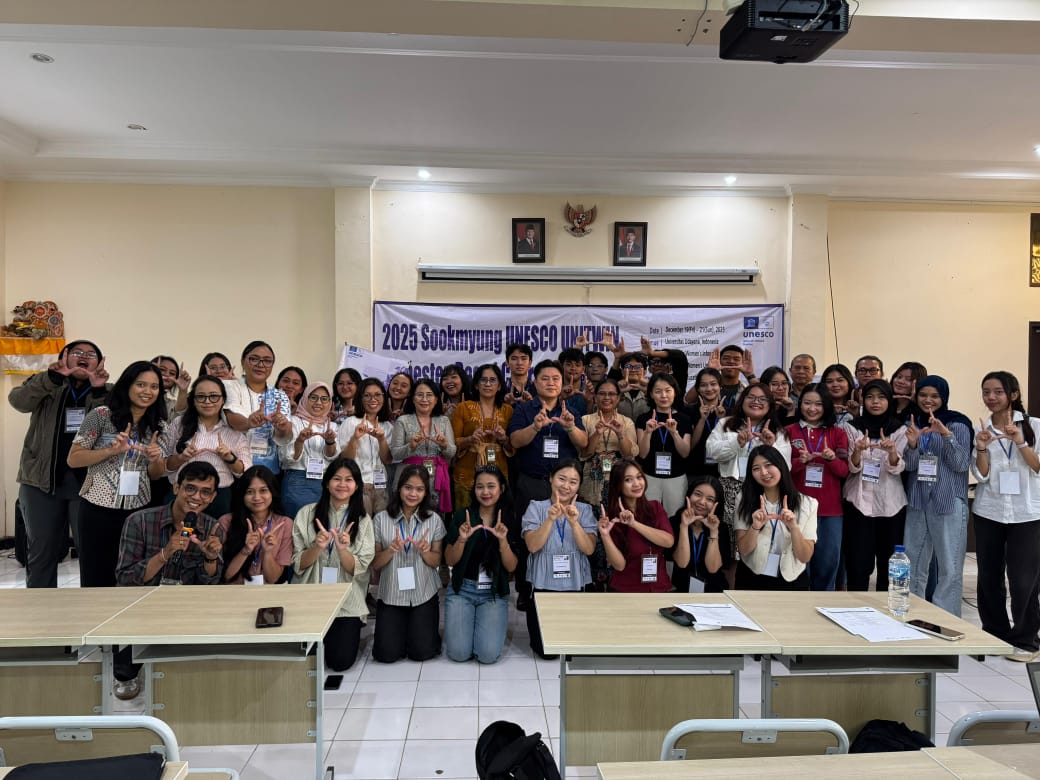
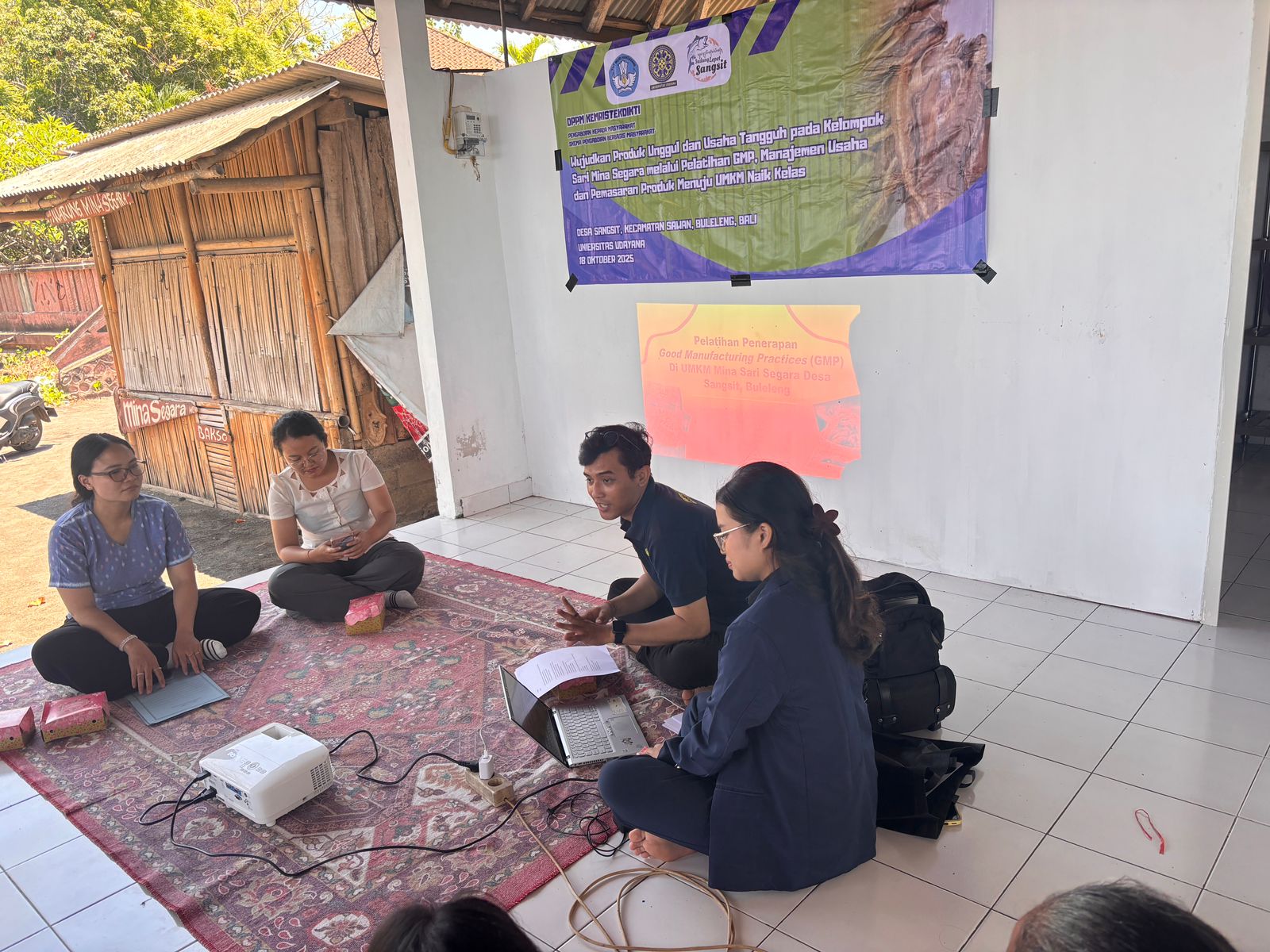
UDAYANA UNIVERSITY